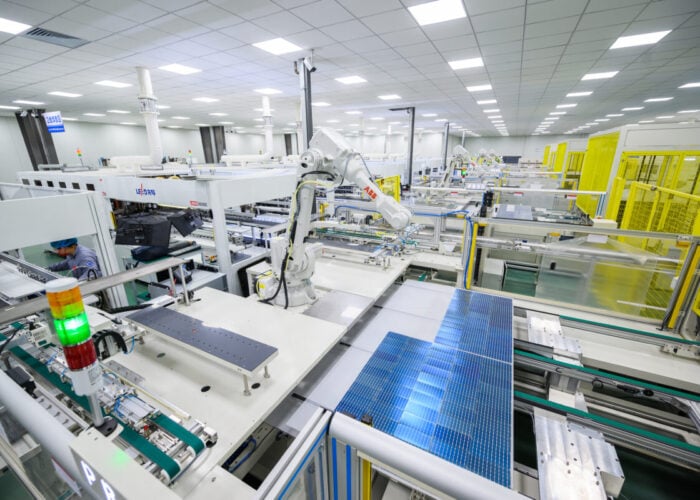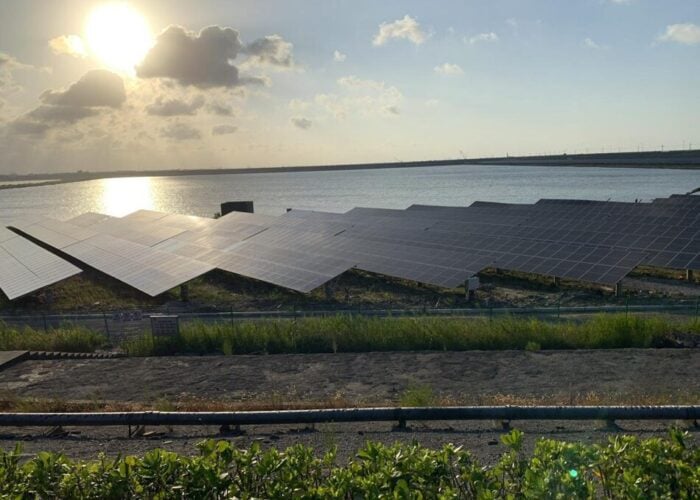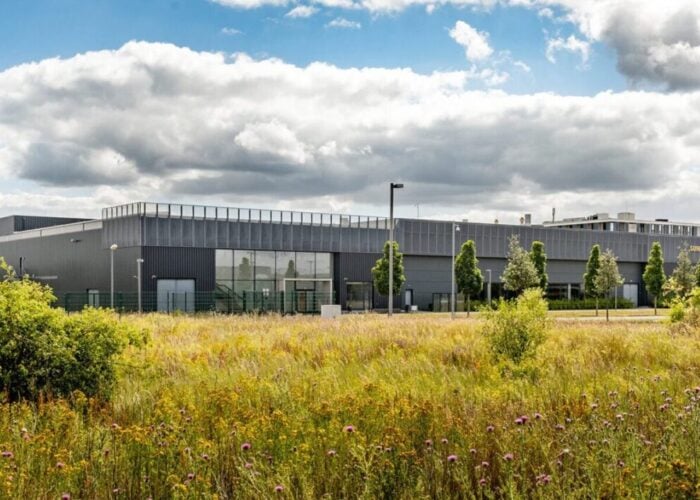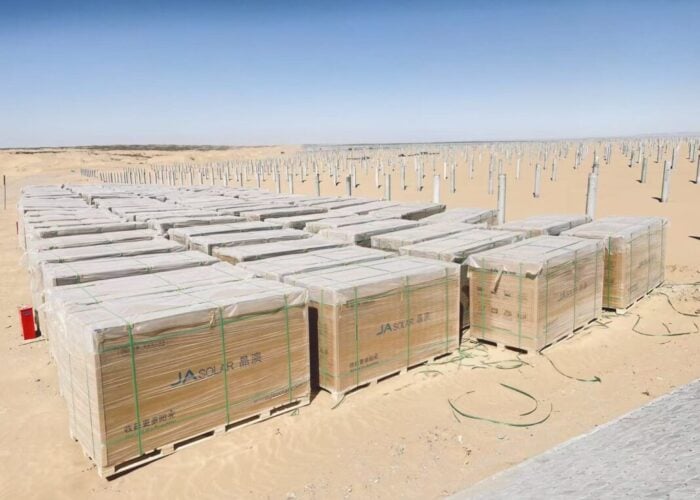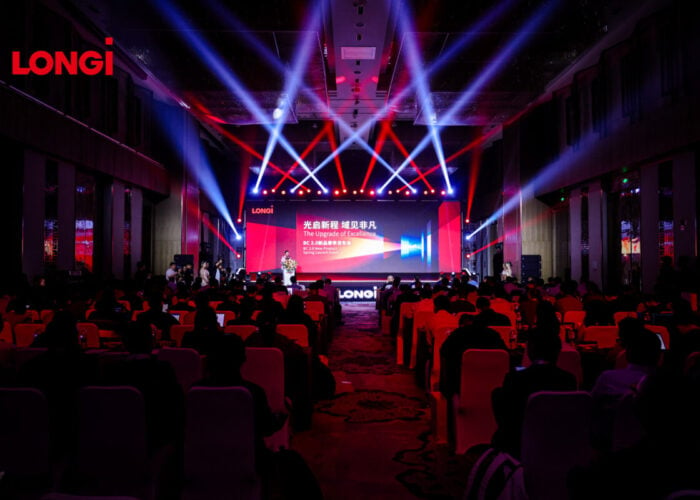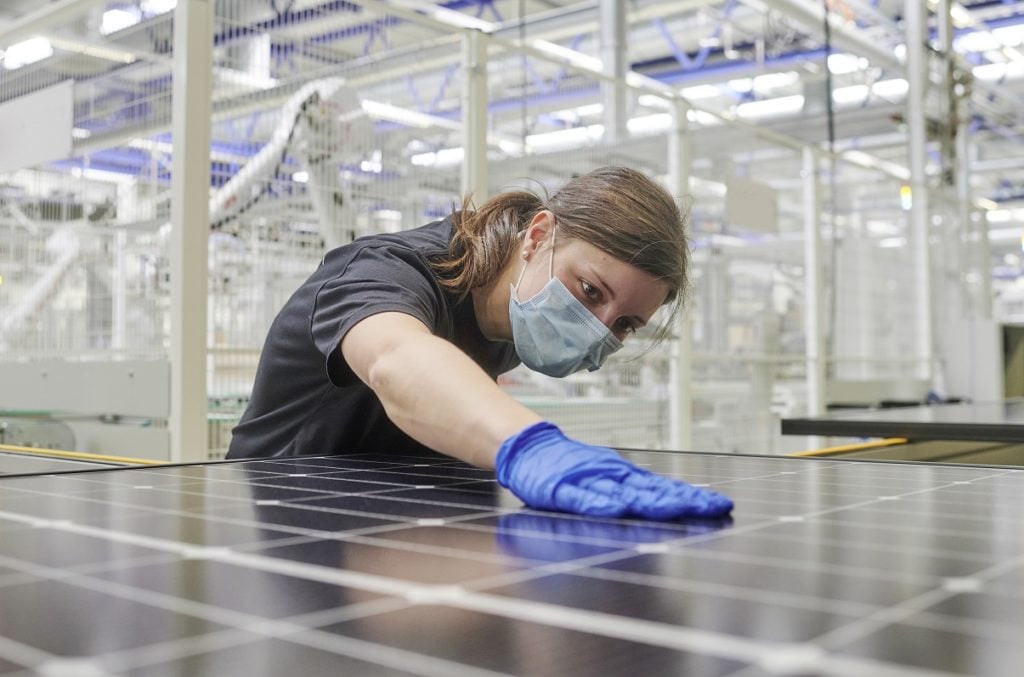
Meyer Burger has been hit by supply chain bottlenecks that have slowed the ramp-up of manufacturing capacity at its new cell and module plants in Germany.
The heterojunction cell and module manufacturer said missing components required for the ramp-up of the factories have delayed the commissioning of individual parts of production lines and are currently reducing the speed of production expansion.
Unlock unlimited access for 12 whole months of distinctive global analysis
Photovoltaics International is now included.
- Regular insight and analysis of the industry’s biggest developments
- In-depth interviews with the industry’s leading figures
- Unlimited digital access to the PV Tech Power journal catalogue
- Unlimited digital access to the Photovoltaics International journal catalogue
- Access to more than 1,000 technical papers
- Discounts on Solar Media’s portfolio of events, in-person and virtual
Or continue reading this article for free
As a result, the company no longer expects to meet its deadline of reaching full production capacity at the end of August, but instead a few weeks later.
The firm is now working to arrange “appropriate solutions” for the delivery of ordered modules with customers affected by the delay.
While noting that global supply chains for various components are out of balance in 2021, Meyer Burger said it was able to secure the supply chains for materials needed for cell and module production – such as silicon wafers, glass and module frames – early on and suffers from no restrictions in this respect.
The Switzerland-headquartered company opened both its cell and module factories in May of this year, with both starting production with annual capacities of 400MW. A month later, it secured debt financing to help support an upgraded target of reaching cell and module capacity of 1.4GW each by the end of 2022, as it revealed it would not sell its heterojunction solar cells to third parties as originally planned.
Meyer Burger, which is due to publish its results for the first half of 2021 on 19 August, said the slower ramp-up of manufacturing capacity will have no impact on its guidance for the year.
Supply chain issues have been noted elsewhere in the sector this week, with SMA Solar Technology warning of potential delivery capacity constraints in H2 because of the ongoing strained supply of electronic components. The inverter manufacturer revealed in its first half results statement that it has carried a stockpiling strategy and has implemented tighter supplier management policies.
Rival manufacturer Enphase Energy is adding new suppliers of drivers used in its flagship microinverter products following supply issues earlier in the year.
Meanwhile, the president of Canadian Solar’s manufacturing division, Yan Zhuang, said the company is aiming to gain more control of its supply chain through “upstream positioning”. The CSI Solar unit has lowered its module shipment guidance for the full year, expecting to ship between 16 – 17GW of modules in 2021.

